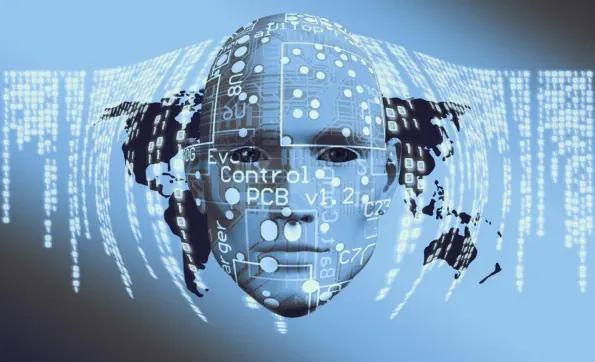The integration of artificial intelligence (AI) into cybersecurity marks a significant shift in the way businesses handle evolving threats. As companies increasingly embed technology into their operations, there is a corresponding rise in the risk of data breaches and cyberattacks. AI-driven cybersecurity helps organizations identify potential threats more effectively, manage risks proactively, and adhere to regulatory standards. This trend is growing in popularity due to its ability to detect vulnerabilities and bolster security protocols, thus leading to enhanced transparency and more informed decision-making within businesses. Furthermore, AI in cybersecurity transforms how businesses protect their data and systems, showcasing a proactive approach to battling cyber threats as opposed to the traditional reactive approach.
Revolutionizing Threat Detection with AI
AI, particularly through machine learning algorithms, has revolutionized the identification of cyber threat patterns. Analyzing these patterns allows for real-time monitoring and mitigation of cybersecurity risks, preventing unauthorized data access. AI is also instrumental in helping businesses comply with regulatory requirements, promoting sustainable data management practices across various operations. The technology is capable of learning from previous attacks, enabling it to detect new, emerging threats quickly and more efficiently, which is essential in today’s fast-paced digital landscape.
Regulatory bodies such as the European Union (EU) and California have mandated comprehensive risk assessments to detect and mitigate cyber threats proactively. Systems powered by AI play a vital role in fortifying these defenses. The importance of cybersecurity is underscored by its ranking as the second-highest priority for corporate boards in PwC’s 2023 Annual Corporate Directors Survey. This elevation in priority illustrates the widespread recognition of the necessity of robust cybersecurity measures in protecting sensitive information and maintaining consumer trust. By leveraging AI, businesses can stay a step ahead of cybercriminals, addressing potential vulnerabilities before they can be exploited.
Regulatory Compliance and Enhanced Security
The General Data Protection Regulation (GDPR) enforced by the EU mandates that businesses implement technical and organizational measures to enhance security and minimize digital risks. These regulations are pivotal in preventing fraud and cybercrime, thereby strengthening consumer trust. GDPR stipulates incorporating security measures from the design phase through to completion and maintaining privacy throughout the process. This comprehensive approach ensures that organizations embed security into the fabric of their operations, fostering a culture of continuous vigilance and improvement.
Similarly, the California Consumer Privacy Act (CCPA) introduces additional regulations that emphasize risk-based approaches in business operations. AI-driven processes that handle sensitive data must ensure transparency to consumers, demonstrating the impact on service outcomes. The CCPA provides consumers with the right to limit the use and disclosure of their sensitive data, and it requires companies to maintain a data broker registry. This registry allows individuals to delete their information from participating businesses, fostering transparency and enhancing cybersecurity practices. The EU’s regulatory model serves as a benchmark for international AI regulation, striking a balance between technological innovation and societal values, setting a gold standard for data privacy that other countries aim to emulate.
Impact of GDPR and CCPA on AI-Driven Cybersecurity
The updates to GDPR and CCPA have had a significant impact on AI-driven cybersecurity solutions. These regulatory changes require businesses to enhance transparency in data processing, improve personal and business data protection, and implement robust security measures. For example, Coca-Cola has adopted AI-powered cybersecurity solutions to identify threat patterns and provide real-time support in system design, using Microsoft Azure to detect and respond to cyber threats with real-time insights. This proactive stance on cybersecurity ensures that the company remains compliant with regulations while protecting its valuable data assets from potential breaches.
Enhanced risk assessment is another crucial benefit of these regulatory updates. Transparent and explainable risk assessment solutions are vital for expanding AI-driven cybersecurity within companies. These solutions provide valuable insights into cybersecurity operations and inform security management decisions. By employing AI to perform thorough and ongoing risk assessments, organizations can better understand their threat landscape and take appropriate measures to mitigate risks. This ensures that cybersecurity practices are not only effective but also align with regulatory requirements, thereby minimizing the likelihood of regulatory penalties and reputational damage due to data breaches or non-compliance.
Promoting Fairness and Accountability
AI-driven cybersecurity also promotes fairness and legality in business operations. Under GDPR and CCPA, AI helps prevent discrimination by ensuring that services are delivered equitably. For instance, Microsoft employs AI in cybersecurity with an intelligent learning mechanism to identify threats and provide real-time responses. This system offers fair solutions and transparent reporting on security management decisions to authorities. Microsoft’s AI-driven approach, which incorporates advanced threat intelligence, is leveraged by Prudential in its health and life insurance systems to reduce false positives and enhance the effectiveness of incident response.
AI supports developing accountability within business operations by identifying potential risks and improving decision-making processes. This capability is crucial in ensuring that cybersecurity measures are not only efficient but also equitable and just. AI’s ability to provide detailed reports and analyses helps businesses make informed decisions, demonstrating a commitment to transparency and accountability. This is essential in building and maintaining consumer trust, which is increasingly important in today’s data-driven economy. By utilizing AI to uphold fairness in their operations, companies can ensure that they are not inadvertently discriminating against certain groups and can demonstrate to regulators and stakeholders their dedication to ethical practices.
Challenges in Implementing AI-Driven Security Solutions
However, implementing AI-driven security solutions is not without its challenges. Ethical concerns arise, particularly regarding transparency in decision-making. Companies must adhere to data privacy and protection regulations to avoid biased actions or decisions that could damage their reputation and operations. High implementation costs are another hurdle, as integrating AI-driven technology requires significant investment in both hardware and software infrastructure. Additionally, businesses need to allocate resources for hiring skilled personnel to manage and maintain these systems, which can be particularly difficult for smaller companies.
Dependence on data quality also poses a challenge. AI systems rely heavily on high-quality data to function effectively. Inaccurate or poor-quality data can result in incorrect decisions, increasing the risk of compliance issues and operational failures. Furthermore, the introduction of AI technologies can cause concern among employees who fear job displacement. To mitigate this resistance, businesses must provide effective training and transparent communication to ensure staff buy-in and address their concerns. This comprehensive approach to integration ensures that AI-driven solutions are not only implemented effectively but also accepted and supported by the workforce, thereby maximizing their potential benefits.
Strategic Integration of AI in Cybersecurity
The EU’s General Data Protection Regulation (GDPR) requires businesses to implement both technical and organizational strategies to bolster security and mitigate digital risks. These measures are essential in curbing fraud and cybercrime, thus fortifying consumer confidence. GDPR mandates incorporating security protocols from the beginning of a project and maintaining privacy throughout, ensuring organizations integrate security into their core operations. This leads to a culture of continuous vigilance and enhancement.
Similarly, the California Consumer Privacy Act (CCPA) introduces additional rules that highlight risk-based strategies in business operations. AI systems handling sensitive data must be transparent to consumers, showing the impact on service outcomes. CCPA grants consumers the right to restrict the use and sharing of their sensitive data and requires companies to maintain a data broker registry, allowing individuals to delete their information. This fosters transparency and improves cybersecurity practices. The EU’s regulatory framework serves as a model for international AI regulation, balancing technological innovation with societal values, and setting a high standard for data privacy that other nations strive to follow.













